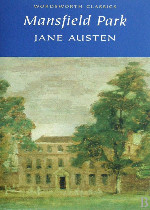
Mansfield Park is the third published novel by Jane Austen, first published in 1814. The novel tells the story of Fanny Price starting when her overburdened family sends her at age 10 to live in the household of her wealthy aunt and uncle, through to her marriage. The novel was first published by Thomas Egerton. A second edition was published in 1816 by John Murray, still within Austen's lifetime. The novel did not receive any critical attention when it was initially published; the first particular notice was in 1821, in a positive review of each of the published novels by Jane Austen.
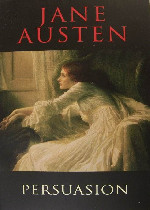
Persuasion est le dernier roman de l'auteur anglais Jane Austen, publié posthumément en décembre 1817 mais daté de 1818. Le roman est regroupé en un volume double avec Northanger Abbey, le premier des grands romans de Jane Austen, écrit en 1803 mais resté non publié jusque là. D'un ton plus grave que les œuvres précédentes de la romancière, il raconte les retrouvailles d'Anne Elliot avec Frederick Wentworth, dont elle a repoussé la demande en mariage huit ans auparavant, persuadée par son amie Lady Russell des risques de cette union avec un jeune officier de marine en début de carrière, pauvre et à l'avenir incertain.
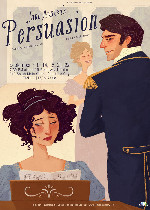
Persuasion is the last novel fully completed by Jane Austen. It was published at the end of 1817, six months after her death. The story concerns Anne Elliot, a young Englishwoman of 27 years, whose family is moving to lower their expenses and get out of debt, at the same time as the wars come to an end, putting sailors on shore. They rent their home to an Admiral and his wife. The wife’s brother, Navy Captain Frederick Wentworth, had been engaged to Anne in 1806, and now they meet again, both single and unattached, after no contact in more than seven years.
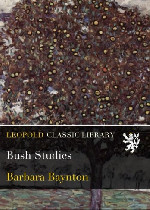
Bush Studies is a short story collection by Barbara Baynton. Bush Studies was published in London in 1902. Baynton's short stories and novel display a grim realism and depiction of female suffering which represents an alternative view to the romanticism of the bush.
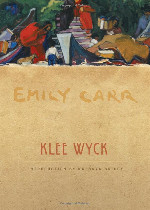
Klee Wyck (1941) is a memoir by Canadian artist Emily Carr. Through short sketches, the artist tells of her experiences among First Nations people and cultures on British Columbia's west coast. The book won the 1941 Governor General's Award and occupies an important place in Canadian literature. Carr was an avid traveller, and explored much of the west coast of British Columbia in her lifetime. She related some of her experiences on western Vancouver Island, Haida Gwaii, and on the Skeena and Nass Rivers are related in this first book.
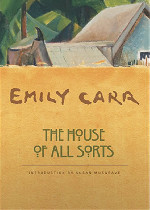
The House of All Sorts(多样房子) 立即阅读
The House of All Sorts is a collection of 41 stories of those hard-working days and the parade of tenants- young couples, widows, sad bachelors and rent evaders all the tears and travails of being a landlady confronted with the startling foibles of humanity. Carr is at her most acerbic and rueful, but filled with energy and inextinguishable hope. Carr’s writing is vital and direct, aware and poignant, and as well regarded today as when The House of All Sorts was first published in 1944 to critical and popular acclaim. The book has been in print ever since.
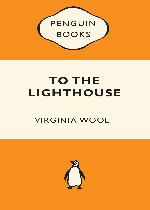
To the Lighthouse is a 1927 novel by Virginia Woolf. The novel centres on the Ramsay family and their visits to the Isle of Skye in Scotland between 1910 and 1920. Following and extending the tradition of modernist novelists like Marcel Proust and James Joyce, the plot of To the Lighthouse is secondary to its philosophical introspection. Cited as a key example of the literary technique of multiple focalization, the novel includes little dialogue and almost no action; most of it is written as thoughts and observations.
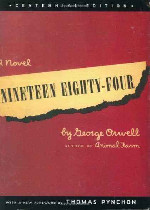
Nineteen Eighty-Four(1984) 立即阅读
Nineteen Eighty-Four, often published as 1984, is a dystopian novel published in 1949 by English author George Orwell. The novel is set in Airstrip One, formerly Great Britain, a province of the superstate Oceania. Oceania is a world of perpetual war, omnipresent government surveillance and public manipulation. Oceania's residents are dictated by a political regime euphemistically named English Socialism (shortened to "Ingsoc" in Newspeak, the government's invented language). The superstate is under the control of the privileged, elite Inner Party.
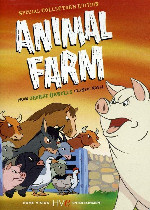
Animal Farm is an allegorical novella by George Orwell, first published in England on 17 August 1945. According to Orwell, the book reflects events leading up to the Russian Revolution of 1917 and then on into the Stalinist era of the Soviet Union. Orwell, a democratic socialist, was a critic of Joseph Stalin and hostile to Moscow-directed Stalinism, an attitude that was critically shaped by his experiences during the Spanish Civil War. The Soviet Union, he believed, had become a brutal dictatorship, built upon a cult of personality and enforced by a reign of terror.